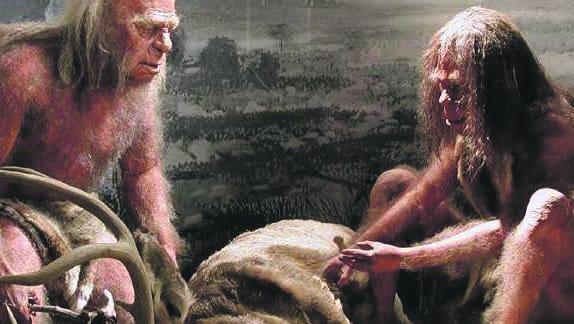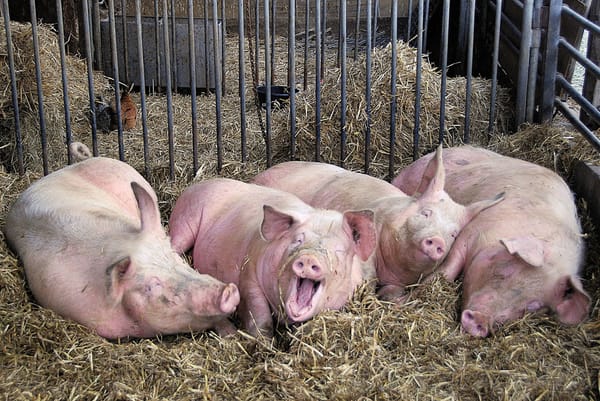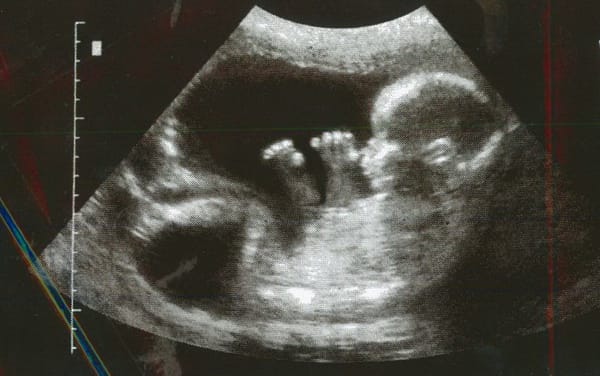Brain power needed for tools
Question of how Stone Age man evolved to craft increasingly superior stone tools answered

In a collaborative effort, Imperial researchers have answered the question of how Stone Age man evolved to craft increasingly superior stone tools. Why did it take Lower Paleolithic humans almost two million years to develop the sophisticated hand-held axe from crude razor-sharp stones? Computer modelling and sensor-embedded gloves compared complex hand crafting skills of one early and one late Paleolithic tool-making method to assess any differences in brain activity between the two methods.
The research team, led by Imperial neuroscientist Dr. Aldo Faisal, deduced that manufacturing intentionally shaped axe-tools required higher levels of brain processing and more complex thoughts than shaping sharp stones. This dispels previous theories suggesting that underdeveloped motor skills were responsible for the slow evolution of tool complexity.
The project required the collaborative effort of neuroscientists, archaeologists, anthropologists and craftspeople in order to synthesise theories relating archaeological evidence with potential changes in behaviour and cognition.
The Lower Paleolithic period of the Stone Age accounts for 90% of human prehistory. Around 2.6 million years ago (mya) the earliest stone tools, sharp stone flakes, were bashed from river cobbles with small rocks. Although this method required reasonably high levels of perception and motor skills, intentionally shaped, superior tools began to appear 1.7mya. This development is thought to be a crucial step in human cognitive evolution as it required more advanced mental and procedural capacities and is considered direct evidence of the evolution of more complex human behaviour.
The research team replicated the art of flintnapping, whereby Conchoidal stones such as flint, chert and obsidian are shaped into tools using hammerstones to detach the lithic flakes from a stone core. They compared the neural bases of crafting early Lower Paleolithic razor-sharp stones, or Oldowan flakes, and late Lower Paleolithic handaxes with the sensor-embedded data glove, which recorded digit joint angles to compare grip and manipulative complexity of the crafting hand and stone core-holding hand.
Previous research has shown there are differences in brain activity between the two methods, and this project suggests that the differences are due to higher-level behavioural organisation in the brain, rather than poor dexterity. Dr. Faisal puts the findings into context: “The advance from crude stone tools to elegant hand-held axes was a massive technological leap four our early human ancestors. Hand-held axes were a more useful tool for defence, hunting and routine work.”
In addition to primary findings the research suggests a link between language and tool-making activities due to observed neural overlap of these activities in the brain’s inferior frontal cortex. This region controls manual grip coordination and the processing of sounds. Earlier research has also identified that later Lower Paleolithic tool-making differed from that in earlier periods by producing additional activity in the right hemisphere of the brain, including a region of the Broca’s area. This area is involved in higher-order cognition and processing linguistic context. Taken together these findings suggest a link in evolution between increasingly complex cognitive capabilities and the development of language. Dr. Faisal adds that this “makes the end of the Lower Paleolithic a pivotal time in our history. After this period, early humans left Africa and began to colonise other parts of the world.”





